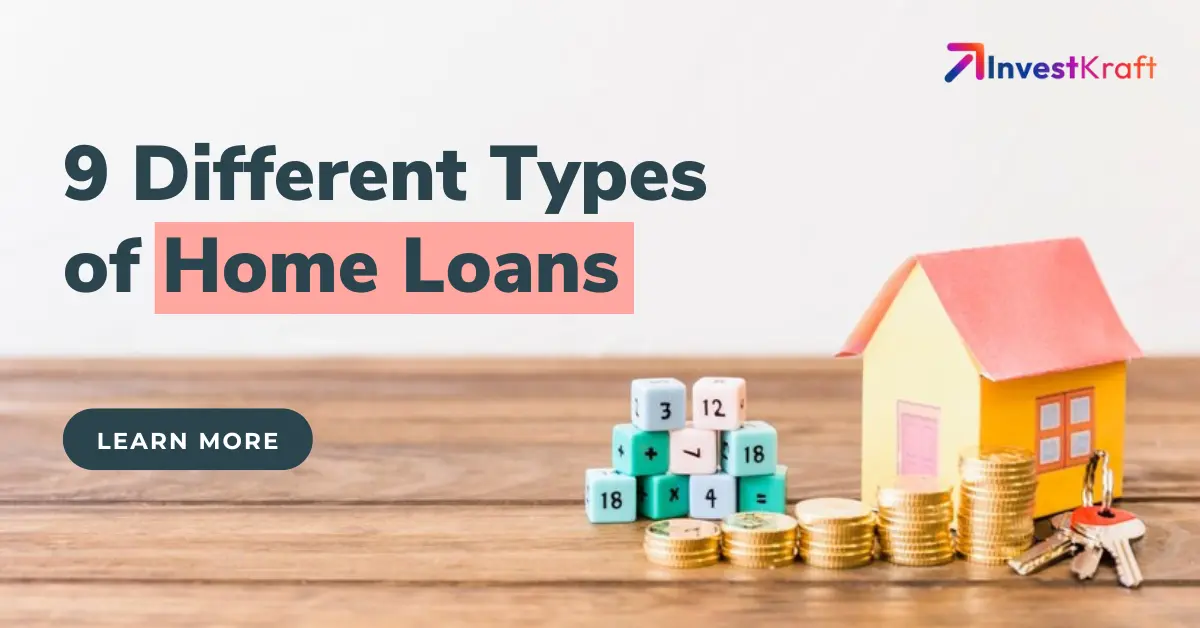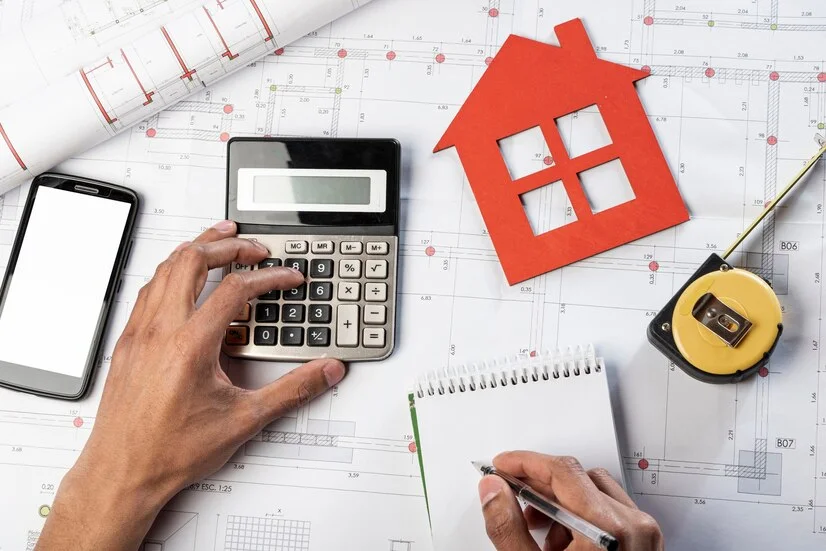What Is a Home Equity Loan?

What Is a Home Equity Loan? Want to know what a home equity loan is? A home equity loan is a home loan where a borrower pledges his home as a security against the borrowed amount.
What is Equity?
Equity is the difference between the current value of your home and the balance of any outstanding mortgages. When you take out a home equity loan, you get your money all at once. A fixed interest rate on a home equity loan is one that won't alter. The lender has the right to seize your home if you are unable to repay the HEL. If you're thinking of taking out a HEL to pay off your debts, you should talk to a credit counsellor about other options that won't possibly put your house at risk of being sold at auction. When comparing home equity loans, remember that some may come with upfront fees and expenses in addition to your monthly payment.
Types of Home Equity Loan (HEL)
There are primarily two types of home equity loan (HEL). Let's examine these two categories in more detail:
1. Fixed-rate loans for home equity
Fixed-rate home equity loans provide the borrower a lump amount. The sum must be paid back to the lending bank with interest, just like any other loan. Please take notice that a fixed-rate home equity loan's interest rate does not fluctuate based on market circumstances and does not vary throughout the course of the loan.
2. Home equity lines of credit (HELOCs)
The main distinction between a HELOC and a fixed-rate home equity loan is that the latter does not provide the borrower with a flat sum of cash. Similar to a credit card that may be used repeatedly and paid off in monthly installments is a home equity line of credit. A HELOC is a secured loan for which the borrower's pledged property serves as security. HELOCs can also be provided to borrowers in bundles that also include a credit card. Through the use of checks, they are able to pay back the debt.
Major differences between home equity loans and home equity lines of credit
The following are the main differences between HELOCs and home equity loans:
Interest rates: A HELOC's interest rate is variable, but a fixed-rate home equity loan's interest rate is fixed.
Credit: Another significant distinction between the two types of home equity loans is the manner in which credit is offered to the consumer. Fixed-rate home equity loans start out by giving the consumer a flat payment. HELOCs, on the other hand, give the consumer access to a line of credit.
Home equity loans with fixed rates may be repaid through set monthly installments, whereas HELOC payback amounts fluctuate over time.
Payback period: A fixed-rate home equity loan's repayment period begins as soon as the lump sum is paid out. Repayment for a HELOC is only required for interest accrued throughout the loan's duration. As the repayment phase begins, the principle repayment also does.
Who must decide: You must select a fixed-rate home equity loan if you urgently need lump sum financing (for launching a business, for instance). On the other hand, you must choose a HELOC if you want funds for a sustained length of time (for instance, to manage your business during an emergency).
How the Home Equity is Calculated?
Your loan amount will be decided by the amount of equity in your property, whether you choose a HELOC or a fixed-rate home equity loan. The following formula can be used to determine your property's equity in India:
Equity is calculated as the current worth of the home less the total amount still owed on the loan.
Let's use an example to further comprehend this computation. The present equity in your home will be Rs. 10 lakhs if you purchased it for Rs. 70 lakhs and took out a loan of Rs. 60 lakhs. Let's imagine that your home's worth rose to 90 lakhs throughout the years. Of the unpaid loan balance, you have paid back 30 lakhs. Consequently, your home's equity will rise to:
Equity = ₹80 lakhs - ₹ 30 lakhs = ₹50 lakhs
This demonstrates to us that the equity of a home is a variable. Since a home equity loan's loan amount is determined by equity, the amount you are eligible for may change depending on when you apply for the loan.
Read More: Guide to Home Equity Loans: Advantages & Drawbacks, Eligibility & Limits
Benefits of Home Equity Loans
- Rates of Fixed Interest
Fixed interest rates remain constant during the course of the loan, in contrast to variable interest rates, which can increase and decrease. Holding interest rates consistent may reduce the cost of the loan over time because interest raises the overall cost of your loan. But as will be covered later, fixed rates can sometimes be disadvantageous.
- Consistent Payments
The ability to predict payment amounts can be quite beneficial. Your payment on a home equity loan is set for the duration of the loan and is unaffected by changes in interest rates. Knowing your monthly expenses in advance makes it simpler to keep to a spending plan and anticipate future expenses.
- Possibly Deductible Interest
You might be eligible to deduct the interest you pay on the loan on your yearly tax return if you utilise your home equity loan to construct, purchase, or make significant renovations to your qualifying house. This is a significant benefit, especially if you use the funds to improve your house.
- Decreased interest rates
Home equity loans are secured, meaning your house is used as collateral, thus the potential risk to lenders is smaller than with other forms of loans. Because of this, you can be eligible for an interest rate that is lower than that of some other financial products, such as credit cards and personal loans. Naturally, your creditworthiness will have an impact on the rate you are offered.
FAQs
How Much Money Can I Borrow in Total Under a Home Equity Loan?
The market value of the home and any financing commitments you may have for the property will determine this.
Can I Obtain a Home Equity Loan Without Pledging My Residence as Security?
No. Your home will be utilised as collateral when applying for this loan as the loan amount will be based on the market worth of your home. If you want to utilise another form of collateral, you might want to think about a secured personal loan.
Do I Require a Home Evaluation?
A: There are times when we don't need to do an evaluation, other times when we must, and levels in between. The requirement for one will only be established after analysing your application and supporting documentation.
The Conclusion
For homeowners who need access to cash and have enough equity in their property, home equity loans might be a smart choice. A home equity loan may be a great substitute for other types of financing since it has set interest rates and predictable payments in addition to the potential for an interest deduction. But there are negatives to take into account. Your home, which is probably your largest asset, is at danger since you are using it as collateral.
Verify Phone Number
Related Post

A Comprehensive Guide to Home Loan Eligibility for Salaried Individuals in 2024
When purchasing a new home, the costs involved can be quite high, necessitating the need for a home...
Read more...
Top 10 Best Banks for Home Loans
Looking to buy your first home? The process can be thrilling, tiring and a bit scary, especially in...
Read more...
10 Factors To Consider While Choosing Home Loan Balance Transfer
We have different needs and financial requirements in life for which we often apply for loans. Among...
Read more...
Home Loan Balance Transfer: Your Complete Guide to Saving on Interest Rates
Are you feeling the weight of your home loan stretching out over the years? Whether you're alrea...
Read more...
Role of Credit History in Home Loan Approval and Interest Rates
A house-buying endeavor requires a significant investment from the lender as well as the buyer. As a...
Read more...
9 Different Types of Home Loans Available in India 2024
Everyone wants to own a home at some point in their lives. Everyone aspires to own a home since it i...
Read more...
10 Tips for First-time Home Buyers in India 2024
Buying a home is not just one of the biggest but also complex decisions in one’s life. This is...
Read more...
7 Major Benefits of Closing A Home Loan Early
Lenders have ceased to charge foreclosure fees to clients with house loans that contain variable int...
Read more...
Top 5 Home Loan Benefits for Women in India 2024
For many of us, purchasing a home is an emotional and once-in-a-lifetime choice. We borrow money, sp...
Read more...
Guide To Tax Benefits on a Home Loan For an Under Construction Property
Tax Benefits on a Home Loan for an Under Construction Property, Over the past few years, there...
Read more...Reach out to our Experts if you have any Doubts
Like the best things in life, Consultations @InvestKraft are free
Drop a Mail or give us a Missed Call & Begin your Investment Journey here






